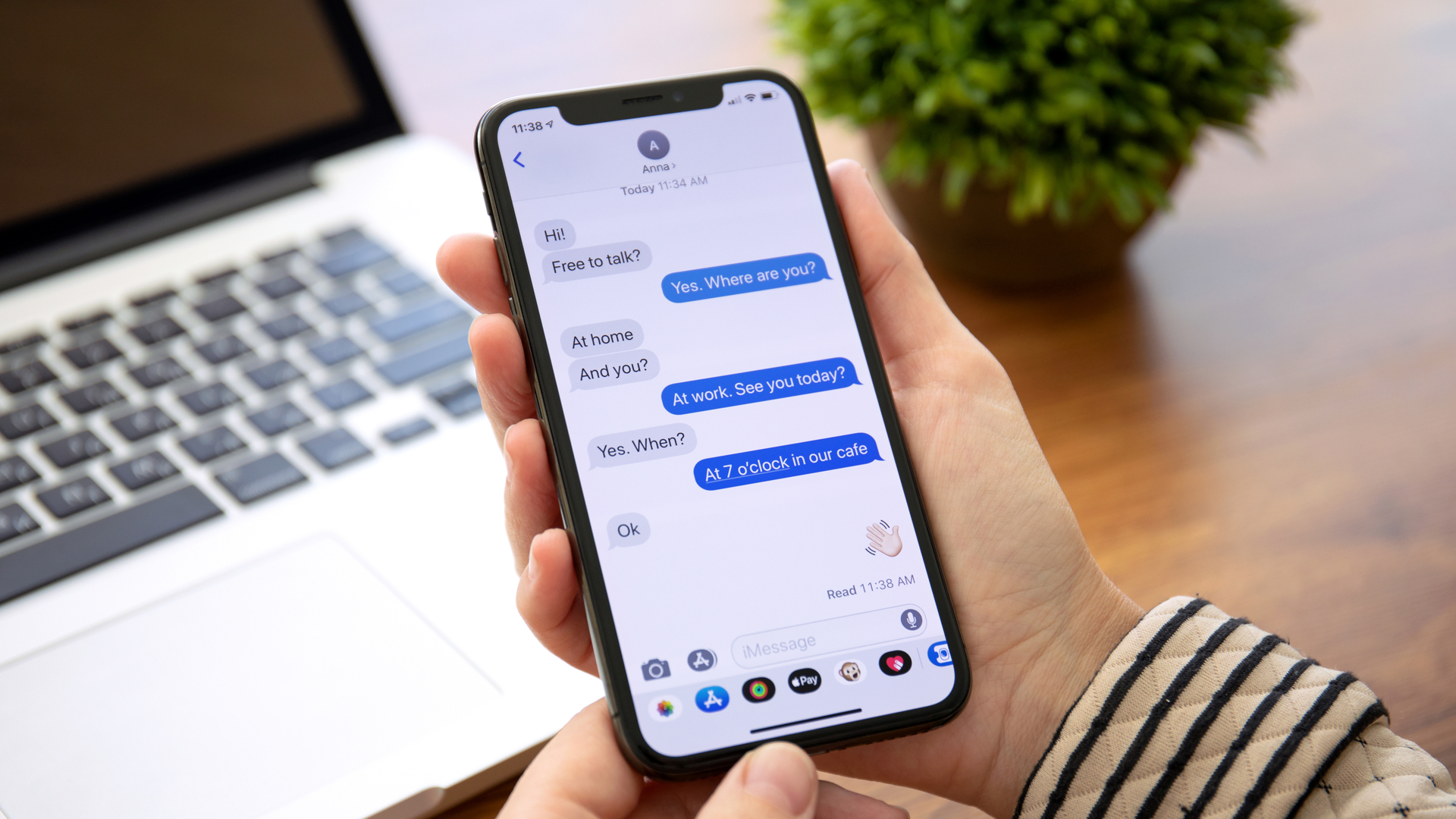iMessage on Android had support — but Apple killed it anyway
Apple's Eddy Cue wanted iMessage on Android, but it got shot down

Apple’s iMessage could have made it to Android back in 2013, had Apple not decided to nix the project and keep it an iOS exclusive. But it turns out not everyone was on board with that decision.
This revelation comes as part of the ongoing legal dispute between Apple and Epic Games. According to released depositions from Eddy Cue, the executive responsible for numerous digital Apple services and storefronts, reveal that he wanted to bring iMessage to Android eight years ago. But Apple killed the idea pretty quickly.
Google has issued an update for beta users that fixes at least one annoying problem when messaging between Android and iMessage users.
- iPhone vs Android: Which phone is better for you?
- Everything that just arrived with iOS 14.5
- Plus: How Apple AirTags work — and how they thwart stalkers
The Epic Games case has previously revealed that Apple killed the idea of launching iMessage on Android. But newly-released documents show that the decision to kill the idea was not completely unanimous.
Both Craig Federighi, SVP of Software and Engineering who is in charge of iOS, and Phil Schiller, who is in charge of the App Store, were against the idea. They believed that launching a cross-platform version of iMessage would “simply serve to remove [an] obstacle to iPhone families giving their kids Android phones.”
It turns out that Cue disagreed with this argument, having already recommended that Apple make iMessage on Android “an official project”. The idea of that project being that it would give users on both iOS and Android a way to “exchange messages with one another seamlessly."
Cue’s argument was that Apple had the best messaging service at the time, and by porting it to Android it could become “the industry standard”. iMessage on Android would also prevent Google from asserting its dominance in another field. As Cue pointed out, the search giant already had search, email, video, and browsers under its belt at the time.
Sign up to get the BEST of Tom's Guide direct to your inbox.
Get instant access to breaking news, the hottest reviews, great deals and helpful tips.
Unfortunately, the rest of the conversation that could pertain to iMessage is redacted, and we can’t see what else Cue might have said on the topic.
A lot has changed since 2013
But with the benefit of hindsight, we know that Cue’s fears never played out the way he imagined. Google has struggled with messaging apps over the years, and there have been several attempts to offer instant messaging that never really took off.
The company has been pushing for mass adoption of iMessage-like RCS messaging over the past couple of years, but that hasn’t made much of an impact. Certainly not since RCS isn’t supported on the iPhone.
Instead, the Facebook-owned WhatsApp cemented itself as the go-to cross-platform messenger of choice. Though you could argue that WhatsApp was already on its way there, which is why Facebook paid $19 billion for the company.
The question is what impact iMessage on Android would have had. Do people really buy iPhones just for iMessage? It’s one of the nicer benefits of using an iPhone, and communicating with other iPhone users, but it’s hard to say how much of a selling point it is.
Parents who want better ways to keep in touch with their kids may well purchase them iPhones to keep everything nice and neat. If iMessage were on Android, parents could just as easily purchase one of the best cheap phones at $200 or less. An iPhone SE costs $399.
Having iMessage launch on Android eight years ago would have been a huge benefit to Android users, and put Apple in a position of power where instant messaging was concerned, But at the same time, it wouldn’t sell any more iPhones or Apple Services. So where’s the incentive to do it?
Unfortunately, the prospect of having iMessage on Android now seems out of reach right now. Cue himself testified that it would have been possible back in 2013, but “that wouldn’t be the case over time, because of the features that were added to Messages”.
In other words iMessage has continued to evolve on the Apple platform over the years, and it’s suggested that there would be a lot more logistical hurdles than just porting the app to Android as it is.

Tom is the Tom's Guide's UK Phones Editor, tackling the latest smartphone news and vocally expressing his opinions about upcoming features or changes. It's long way from his days as editor of Gizmodo UK, when pretty much everything was on the table. He’s usually found trying to squeeze another giant Lego set onto the shelf, draining very large cups of coffee, or complaining about how terrible his Smart TV is.
